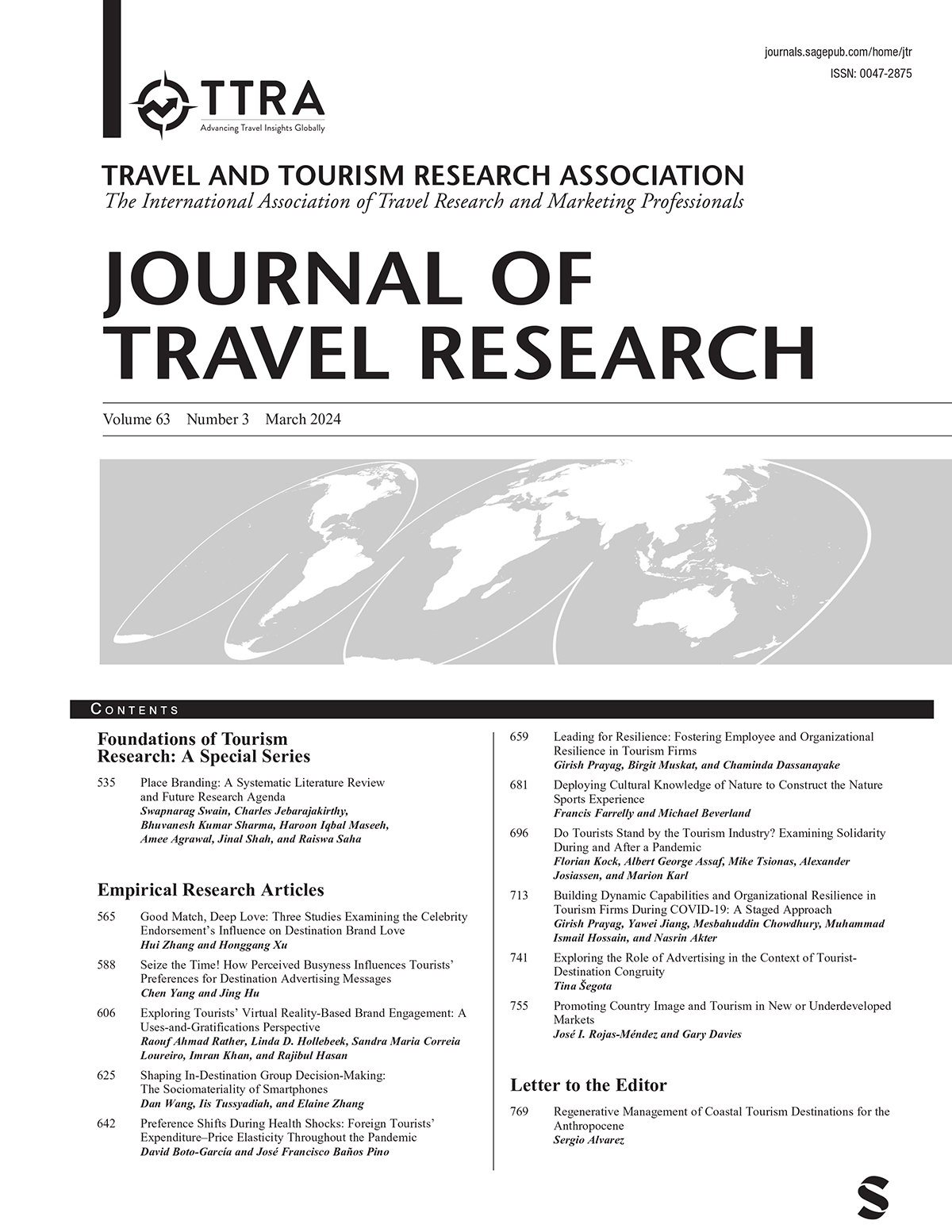Resource Mobilization and Power Redistribution: The Role of Local Governments in Shaping Residents’ Pro-Environmental Behavior in Rural Tourism Destinations
IF 7
2区 管理学
Q1 HOSPITALITY, LEISURE, SPORT & TOURISM
引用次数: 1
Abstract
This research investigates residents’ pro-environmental behavior from the unique perspective of government-resident interactions. Guided by social movement theory, how local governments regulate residents’ waste-sorting behavior in Chinese rural tourism destinations is assessed. This longitudinal study (lasting from 2016 to 2022) uses participant observation, in-depth interviews ( N = 25), and secondary data as the key research techniques. The dual roles of local governments (i.e., resource mobilization and power redistribution) jointly shape residents’ pro-environmental behavior in the waste-sorting campaign. Resource mobilization enhances knowledge of waste-sorting and raises individuals’ environmental consciousness. Power redistribution within groups activates social networks in rural communities and changes groups’ social capital to influence residents’ collective behavior. Results are discussed in relation to how the organizational-level resource mobilization and power redistribution influence the individual-level environmental psychological and sociological factors in shaping residents’ waste-sorting behavior. Practical recommendations are offered for sustainable tourism management from a social interaction perspective.资源动员与权力再分配:地方政府在乡村旅游地居民亲环境行为塑造中的作用
本研究从政府与居民互动的独特视角考察居民的亲环境行为。在社会运动理论的指导下,对中国乡村旅游地地方政府如何规范居民垃圾分类行为进行了评估。本研究采用参与观察、深度访谈(N = 25)和二手数据为主要研究技术,研究时间为2016 - 2022年。地方政府的双重角色(即资源调动和权力再分配)共同塑造了居民在垃圾分类活动中的环保行为。资源调动提高了对废物分类的认识,提高了个人的环保意识。群体内部的权力再分配激活了农村社区的社会网络,改变了群体的社会资本,从而影响了居民的集体行为。研究结果探讨了组织层面的资源动员和权力再分配如何影响个体层面的环境心理和社会因素对居民垃圾分类行为的影响。从社会互动的角度对可持续旅游管理提出了切实可行的建议。
本文章由计算机程序翻译,如有差异,请以英文原文为准。
求助全文
约1分钟内获得全文
求助全文
来源期刊

Journal of Travel Research
HOSPITALITY, LEISURE, SPORT & TOURISM-
CiteScore
18.90
自引率
9.00%
发文量
66
期刊介绍:
The Journal of Travel Research (JTR) stands as the preeminent, peer-reviewed research journal dedicated to exploring the intricacies of the travel and tourism industry, encompassing development, management, marketing, economics, and behavior. Offering a wealth of up-to-date, meticulously curated research, JTR serves as an invaluable resource for researchers, educators, and industry professionals alike, shedding light on behavioral trends and management theories within one of the most influential and dynamic sectors. Established in 1961, JTR holds the distinction of being the longest-standing among the world’s top-ranked scholarly journals singularly focused on travel and tourism, underscoring the global significance of this multifaceted industry, both economically and socially.
 求助内容:
求助内容: 应助结果提醒方式:
应助结果提醒方式:


